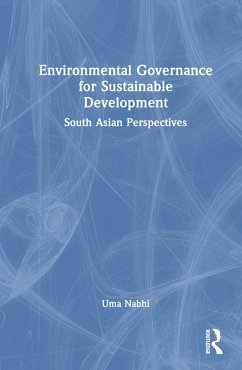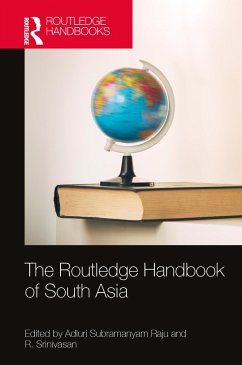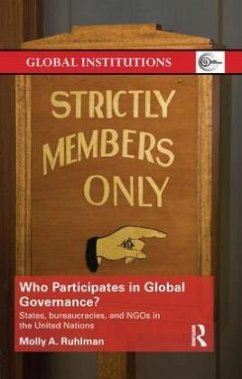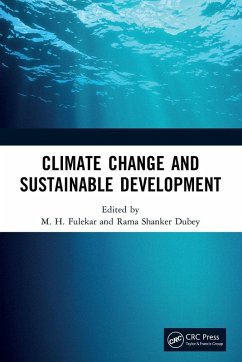
Environmental Governance for Sustainable Development
South Asian Perspectives
Versandkostenfrei!
Versandfertig in 6-10 Tagen
45,99 €
inkl. MwSt.
Weitere Ausgaben:

PAYBACK Punkte
23 °P sammeln!
This book studies the role of the United Nations Environment Programme (UNEP) as an advocate for greater environmental responsibility and analyses the major achievements and outcomes of two landmark conferences - Stockholm (1972) and Rio (1992) - which set the agenda for the future role of the UNEP. It discusses the UNEP's evolution, objectives and the problems of differing perspectives within, its ability to deal with environmental challenges, its skill in successfully carrying out the mandate and contributing to the pursuit of environmental security.The book also looks at five developing cou...
This book studies the role of the United Nations Environment Programme (UNEP) as an advocate for greater environmental responsibility and analyses the major achievements and outcomes of two landmark conferences - Stockholm (1972) and Rio (1992) - which set the agenda for the future role of the UNEP. It discusses the UNEP's evolution, objectives and the problems of differing perspectives within, its ability to deal with environmental challenges, its skill in successfully carrying out the mandate and contributing to the pursuit of environmental security.
The book also looks at five developing countries of South Asia, namely India, Bangladesh, Nepal, Pakistan and Sri Lanka, to study the role of the South Asia Co-operative Environment Programme (SACEP), which plays an active role in the management of environmental issues and constitutes an important landmark in regional cooperation in South Asia. The author evaluates the contributions of National Conservation Strategies not only in creating environmental awareness but also in strengthening environmental governance architecture by integrating Millennium Development Goals and Sustainable Development Goals into the development planning of these South Asian countries under study.
Drawing on in-depth research and interviews, this book will be of interest to students, teachers, researchers, policymakers and strategic analysts working in the fields of environment studies, sustainable development, environmental science and policy, environmental law and governance, geography, politics and international affairs.
The book also looks at five developing countries of South Asia, namely India, Bangladesh, Nepal, Pakistan and Sri Lanka, to study the role of the South Asia Co-operative Environment Programme (SACEP), which plays an active role in the management of environmental issues and constitutes an important landmark in regional cooperation in South Asia. The author evaluates the contributions of National Conservation Strategies not only in creating environmental awareness but also in strengthening environmental governance architecture by integrating Millennium Development Goals and Sustainable Development Goals into the development planning of these South Asian countries under study.
Drawing on in-depth research and interviews, this book will be of interest to students, teachers, researchers, policymakers and strategic analysts working in the fields of environment studies, sustainable development, environmental science and policy, environmental law and governance, geography, politics and international affairs.














